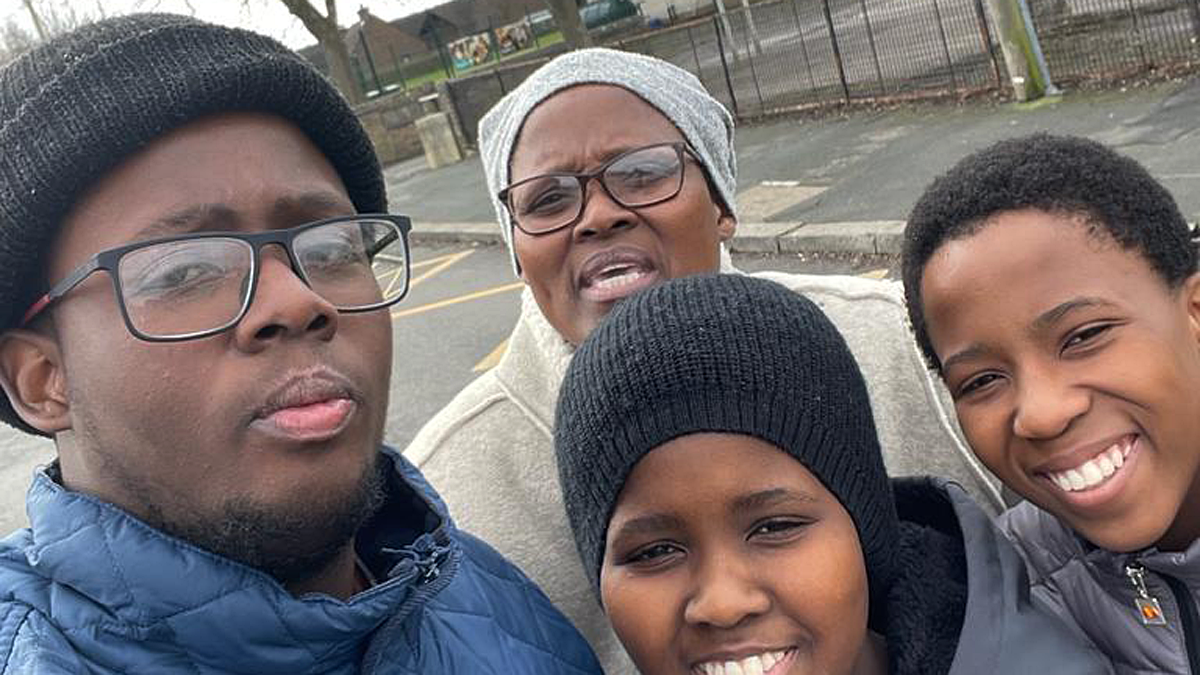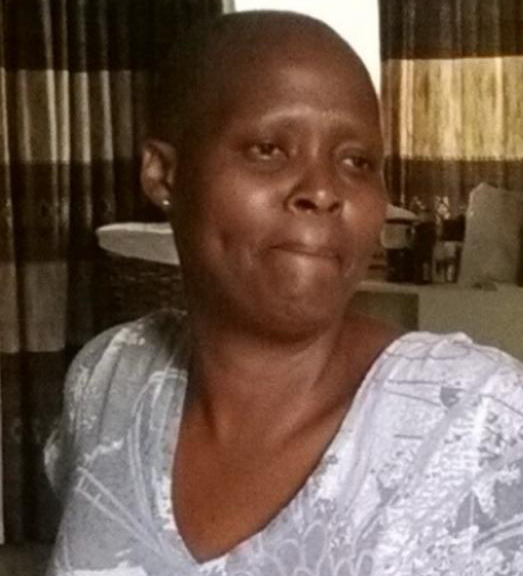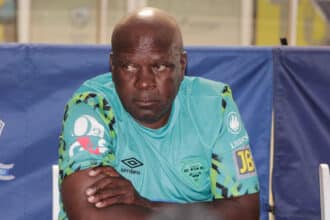October is ‘Pink Month’. To help raise awareness, Voice Woman enjoys a light-hearted chat with breast cancer survivor, Mpho Kgaodi–née Shabane.
The 52-year-old working mum-of-three boys (19, 15 and 12) humorously narrates her journey with the dreaded disease right from the very moment she was diagnosed; she has optimistically managed to turn the proverbial lemons into lemonade.
Based in Bristol, United Kingdom, the Mmadinare-born healthcare professional survived breast cancer not once but twice. While still in Botswana, in 2012 she was diagnosed with stage 2 and then a year later with stage 1 after scratching an itch just above her right breast and discovering a lump.

“Within a week, it had become visible and, a week later, I saw the surgeon. He gave me two options to either do a biopsy or remove the entire lump for examination. I opted for the latter because I did not want that lump in my body! After two weeks, results showed that I had breast cancer – stage 2 and it had already spread to the muscles on the chest. I decided immediately that I wanted to undergo a mastectomy (a breast cancer surgery in which the surgeon removes the tumor and the entire breast). My surgeon wanted to give me time to think about it, but I insisted that he slot me in his next list of patients to operate on, solely because I didn’t want to take chances as cancer can spread as fast as wild fire.”
The doctor duly booked her in for the following week to remove the right breast and start her treatment as soon as she had recovered.
“The surgeon had explained to me about the treatment of breast cancer, making it easy for me to make decisions that I am glad I made then. I did six cycles of chemo. The side effects were hectic, but manageable, because I so believed that chemotherapy does help. I lost hair, my nail beds turned blue, and I started gaining weight. My bones would ache, sometimes my body would itch like crazy but I remained focused. Then followed the check-ups every three months,” she says.

Before she knew it, the cancer was back again in 2013, albeit without the usual lump and obvious signs, save for a severe pain on the breast.
“Since nothing was visible and all the necessary tests done – mammograms and x-rays – showed nothing out of the ordinary, my surgeon concluded that it was psychological; possibly because they thought I didn’t want to live with one breast. Anyway, he ended up doing it and it came back as cancer stage 1. My oncologist said I did not need to do chemotherapy as I’d had it just a year earlier, but my instinct felt otherwise. I went for a second and third opinion and they recommended that I start chemo forthwith and so a further six cycles followed. Upon completion, I was started on Tamoxifen tablets, which, quite honestly, I would feel more comfortable taking for the rest of my life. Two reasons: taking it every morning has become part of my routine (laughs) and I will miss that if they say I must stop,” she says jokingly, adding the other reason is when she thinks of stopping, she fears the evil monster might rear its ugly head once again.
“It’s not that I don’t have hope or trust, it’s just that cancer has an annoying tendency of coming back.”
Like most powerful drugs, Tamoxefin comes with side effects of its own.
“Like any medication, it has side effects. Like excessive weight gain, jaaka o bona nkareke tube yatractorayaana (as you can see, I look like an inflated tractor tyre). Itching of the skin, cramps are some of the nagging side effects. This Tamoxifen used to be taken for three years and most people had recurrence. Then five years, still more recurrence. They went up to seven and now it is 10 years. It’s scary that one could possibly lose a job over something like this!” she notes.
In 2019, Shabane relocated to the U.K. where the cancer regime/protocol is the same as locally.
“The resources are available, like support groups and free prostheses for us who elected to do mastectomy. I still do a lot of reading about cancer and am involved in some researches, and charities towards treatment of cancer. In this journey, I learnt to walk the walk thus my support structure will then walk with me. It has to be me doing it for myself as opposed to expecting people to do it for me.”
Stressing the importance of making swift decisions as soon as there is even the slightest sign of possible cancer, Shabane advices, “From the time of suspected cancer, one needs to prepare for the result.
When the results arrive, one’s reaction might obviously be fear and anger; don’t dwell on that stage.
Cancer won’t wait for you to make decisions. Acknowledge and accept that it has happened and start doing the necessary.
Take treatment as recommended by healthcare professionals. Join support groups because cancer drains emotionally, psychologically, physically, spiritually and financially.
What I have realised is that early detection saves lives. And the fact that everyone can do regular self-examination makes it even better.”
Her wicked sense of humour has been a great source of strength through the darkest days.
“Talking about it has helped me greatly; I even joke about it most of the time. And now that I have done bilateral mastectomy, I use prostheses and post-surgery bras. Sometimes I forget where I’ve left those, and I will be screaming in the house, ‘Heelang! Where are my breasts!’” she laughs.
Sharing profound lessons she has drawn from this life-changing experience, Shabane reiterates that the hostility of healthcare providers, medical aid companies and employers towards those affected is a topic that’s hardly ever discussed.
“In my country, cancer is associated with or is classified as death. Very few people talk about it because there is so much fear around it. The nation must be educated on the subject as well as the rights of employees. For me, it was not such a blow because I used that insurance, and my employer had to pay me. Imagine if I didn’t know my rights as an employee because, here in Botswana, we all know workers’ rights are often violated. Honestly, I pulled through some of the obstacles because of my character and my attitude towards healthcare professionals who don’t do right by patients, and again the fact that I was covered by medical aid was a plus. After my initial diagnosis, some silly receptionist at one local private hospital told me that I’d only see the Oncologist after 4 months but I referred myself to Donald Gordon Hospital that same week. And, yes, my medical aid wanted to question that decision and I quickly reminded them that I have the right to be treated anywhere in the world and their responsibility was to pay the bill, which they paid!” she declares emphatically.
As a two-time survivor who lives her life positively, Shabane is dedicated to “holding the hands of those who need a friend in their journey” and also encourages others to do regular checkups and screening.
“Early detection gives one a better chance to fight and survive cancer; no one has to fight cancer alone!” she concludes with a smile.





